- Home
- Hugh Howey
Shift (silo) Page 10
Shift (silo) Read online
Page 10
‘I met with the Senator a few weeks ago.’ He stared down into the ginger-coloured liquor in his glass.
‘In Boston,’ Helen said.
He nodded. ‘Right. Well, he wants us to be on this alert team—’
‘You and Mick.’
He turned to his wife. ‘No — us.’
‘Us?’ Helen placed a hand on her chest. ‘What do you mean, us? You and me?’
‘Now listen—’
‘You’re volunteering me for one of his—’
‘Sweetheart, I had no idea what this was all about.’ He set his glass on the coffee table and grabbed the book. ‘He gave me this to read.’
Helen frowned. ‘What is that?’
‘It’s like an instruction manual for the — well, for the after. I think.’
Helen got up from the recliner and stepped between him and the coffee table. She nudged Karma out of the way, the dog grunting at being disturbed. Sitting down beside him, she put a hand on his back, her eyes shiny with worry.
‘Donny, were you drinking on the plane?’
‘No.’ He pulled away. ‘Just please listen to me. It doesn’t matter who has them, it only matters when. Don’t you see? This is the ultimate threat. A world-ender. I’ve been reading about the possibilities on this website—’
‘A website,’ she said, voice flat with scepticism.
‘Yeah. Listen. Remember those treatments the Senator takes? These nanos are like synthetic life. Imagine if someone turned them into a virus that didn’t care about its host, that didn’t need us in order to spread. They could be out there already.’ He tapped his chest, glanced around the room suspiciously, took a deep breath. ‘They could be in every one of us right now, little timer circuits waiting for the right moment—’
‘Sweetheart—’
‘Very bad people are working on this, trying to make this happen.’ He reached for his glass. ‘We can’t sit back and let them strike first. So we’re gonna do it.’ There were ripples in the liquor. His hand was shaking. ‘God, baby, I’m pretty sure we’re gonna do it before they can.’
‘You’re scaring me, honey.’
‘Good.’ Another burning sip. He held the glass with both hands to keep it steady. ‘We should be scared.’
‘Do you want me to call Dr Martin?’
‘Who?’ He tried to make room between them, bumped up against the armrest. ‘My sister’s doctor? The shrink?’
She nodded gravely.
‘Listen to what I’m telling you,’ he said, holding up a finger. ‘These tiny machines are real.’ His mind was racing. He was going to babble and convince her of nothing but his paranoia. ‘Look,’ he said. ‘We use them in medicine, right?’
Helen nodded. She was giving him a chance, a slim one. But he could tell she really wanted to go call someone. Her mother, a doctor, his mother.
‘It’s like when we discovered radiation, okay? The first thing we thought was that this would be a cure, a medical discovery. X-rays, but then people were taking drops of radium like an elixir—’
‘They poisoned themselves,’ Helen said. ‘Thinking they were doing something good.’ She seemed to relax a little. ‘Is this what you’re worried about? That the nanos are going to mutate and turn on us? Are you still freaked out from being inside that machine?’
‘No, nothing like that. I’m talking about how we looked for medicinal uses first, then ended up building the bomb. This is the same thing.’ He paused, hoping she would get it. ‘I’m starting to think we’re building them too. Tiny machines, just like the ones in the nanobaths that stitch up people’s skin and joints. Only these would tear people apart.’
Helen didn’t react. Didn’t say a word. Donald realised he sounded crazy, that every bit of this was already online and in podcasts that radiated out from lonely basements on lonely airwaves. The Senator had been right. Mix truth and lies and you couldn’t tell them apart. The book on his coffee table and a zombie survival guide would be treated the same way.
‘I’m telling you they’re real,’ he said, unable to stop himself. ‘They’ll be able to reproduce. They’ll be invisible. There won’t be any warning when they’re set loose, just dust in the breeze, okay? Reproducing and reproducing, this invisible war will wage itself all around us while we’re turned to mush.’
Helen remained silent. He realised she was waiting for him to finish, and then she would call her mom and ask what to do. She would call Dr Martin and get his advice.
Donald started to complain, could feel the anger welling up, and knew that anything he said would confirm her fears rather than convince her of his own.
‘Is there anything else?’ she whispered. She was looking for permission to leave and make her phone calls, to talk to someone rational.
Donald felt numb. Helpless and alone.
‘The National Convention is going to be held in Atlanta.’ He wiped underneath his eyes, tried to make it look like weariness, like the strain of travel. ‘The DNC hasn’t announced it yet, but I heard from Mick before I got on the flight.’ He turned to Helen. ‘The Senator wants us both there, is already planning something big.’
‘Of course, baby.’ She rested her hand on his thigh and looked at him as if he were her patient.
‘And I’m going to ask that I spend more time down here, maybe do some of my work from home on weekends, keep a closer eye on the project.’
‘That’d be great.’ She rested her other hand on his arm.
‘I want us to be good to each other,’ he said. ‘For whatever time we have left—’
‘Shh, baby, it’s okay.’ She wrapped her arm around his back and shushed him again, trying to soothe him. ‘I love you,’ she said.
He wiped at his eyes again.
‘We’ll get through this,’ she told him.
Donald bobbed his head. ‘I know,’ he said. ‘I know we will.’
The dog grunted and nuzzled her head into Helen’s lap, could sense something was wrong. Donald scratched the pup’s neck. He looked up at his wife, tears in his eyes. ‘I know we’ll get through this,’ he said, trying to calm himself. ‘But what about everyone else?’
16
2110
• Silo 1 •
TROY NEEDED TO see a doctor. Ulcers had formed in both sides of his mouth, down between his gums and the insides of his cheeks. He could feel them like little wads of tender cotton embedded in his flesh. In the morning, he kept the pill tucked down on the left side. At supper, on the right. On either side, it would burn and dry out his mouth with the bitter bite of the medicine, but he would endure it.
He rarely employed napkins during meals, a bad habit he had formed long ago. They went into his lap to be polite and then onto his plate when he was finished. Now he had a different routine. One quick small bite of something, wipe his mouth, spit out the burning blue capsule, take a huge gulp of water, swish it around.
The hard part was not checking to see if anyone was watching while he spat it out. He sat with his back to the wall screen, imagining eyes drilling through the side of his head, but he kept his gaze in front of him and chewed his food.
He remembered to use his napkin occasionally, to wipe with both hands, always with both hands, pinching across his mouth, staying consistent. He smiled at the man across from him and made sure the pill didn’t fall out. The man’s gaze drifted over Troy’s shoulder as he stared at the view of the outside world on the screen.
Troy didn’t turn to look. There was still the same draw to the top of the silo, the same compulsion to be as high as possible, to escape the suffocating depths, but he no longer felt any desire to see outside. Something had changed.
He spotted Hal at the next table over — recognised his bald and splotchy scalp. The old man was sitting with his back to Troy. Troy waited for him to turn and catch his eye, but Hal never looked around.
He finished his corn and worked on his beets. It had been long enough since spitting out his pill to risk a glance towards the serving line. T
ubes spat food; plates rattled on trays; one of the doctors from Victor’s office stood beyond the glass serving line, arms crossed, a wan smile on his face. He was scanning the men in line and looking out over the tables. Why? What was there to keep an eye on? Troy wanted to know. He had dozens of burning questions like this. Answers sometimes presented themselves, but they skittered away if he trained his thoughts on them.
The beets were awful.
He ate the last of them while the gentleman across the table stood with his tray. It wasn’t long before someone took his place. Troy looked up and down the row of adjoining tables. The vast majority of the workers sat on the other side so they could see out. Only a handful sat like Hal and himself. It was strange that he’d never noticed this before.
In the past weeks, it seemed patterns were becoming easier to spot, even as other faculties slipped and stumbled. He cut into a rubbery hunk of canned ham, his knife screeching against his plate, and wondered when he’d get some real sleep. He couldn’t ask the doctors for anything to help, couldn’t show them his gums. They might find out he was off his meds. The insomnia was awful. He might doze off for a minute or two, but deep sleep eluded him. And instead of remembering anything concrete, all he had were these dull aches, these bouts of terrible sadness, and the inescapable feeling that something was deeply wrong.
He caught one of the doctors watching him. Troy looked down the table and saw men shoulder to shoulder on the other side, eyeing the view. It wasn’t long ago that he’d wanted to sit and stare, mesmerised by the grey hills on the screen. And now he felt sick when he caught even a glimpse; the view brought him close to tears.
He stood with his tray, then worried he was being obvious. The napkin fell from his lap and landed on the floor, and something skittered away from his foot.
Troy’s heart skipped a beat. He bent and snatched the napkin, hurried down the line, looking for the pill. He bumped into a chair that had been pulled back from the table, felt all the room’s eyes on him.
The pill. He found it and scooped it up with his napkin, the tray teetering dangerously in his palm. He stood and composed himself. A trickle of sweat itched his scalp and ran down the back of his neck. Everyone knew.
Troy turned and walked towards the water fountain, not daring to glance up at the cameras or over at the doctors. He was losing it. Growing paranoid. And there was just over a month left on this shift. A month that would test every inch of will he had left.
Trying to walk naturally with so many eyes on him was impossible. He rested the edge of his tray on the water fountain, stepped on the lever with his foot and topped up his glass. This was why he had gotten up: he was thirsty. He felt like announcing the fact out loud.
Returning to the tables, Troy squeezed between two other workers and sat down facing the screen. He balled up his napkin, felt the pill hidden within its folds, and tucked it between his thighs. He sat there, sipping his water, facing the screen like everyone else, like he was supposed to. But he didn’t dare look.
17
2051
Washington, DC
THE FAT RAINDROPS on the canopy outside De’Angelo’s restaurant sounded like rhythmless fingers tapping on a drum. The traffic on L Street hissed through puddles gathering against the kerb, and the asphalt that flashed between the cars gleamed shiny and black from the streetlights. Donald shook two pills out of a plastic vial and into his palm. Two years on the meds. Two years completely free of anxiety, gloriously numb.
He glanced at the label and thought of Charlotte, of the necessity of fulfilling the prescription under his sister’s name, then popped them in his mouth. Donald swallowed. He was sick of the rain, preferred the cleanliness of the snow. Winter had been too warm again.
Keeping out of the foot traffic flowing through the front doors, he cradled his phone against his ear and listened patiently while his wife urged Karma to pee.
‘Maybe she doesn’t need to go,’ he suggested. He dropped the vial into his coat pocket and cupped his hand over the phone as the lady beside him wrestled with her umbrella, water flicking everywhere.
Helen continued to cajole Karma with words the poor dog didn’t understand. This was typical of Helen and Donald’s conversations of late. There was nothing real to say to one another.
‘But she hasn’t been since lunch,’ Helen insisted.
‘She didn’t go somewhere in the house, did she?’
‘She’s four years old.’
Donald had forgotten. Lately, time felt locked in a bubble. He wondered if his medication was causing that or if it was the workload. Whenever anything seemed… off any more, he always assumed it must be the medication. Before, it could have been the vagaries of life; it could have been anything. Somehow, it felt worse to have something concrete and new to pin it on.
There was shouting across the street, two homeless men yelling at each other in the rain, squabbling over a bag of tin cans. More umbrellas were shaken and more fancy dresses flowed into the restaurant. Here was a city charged with governing all the others, and it couldn’t even take care of itself. These things used to worry him more. He patted the capsule in his jacket pocket, a comforting twitch he’d developed.
‘She won’t go,’ his wife said exhaustedly.
‘Baby, I’m sorry I’m up here and you have all that to take care of. But look, I really need to get inside. We’re trying to wrap up final revisions on these plans tonight.’
‘How is everything going with that? Are you almost done?’
A file of taxis drove by, hunting for fares, fat tyres rolling across sheets of water like hissing snakes. Donald watched as one of them slowed to a stop, brakes squealing from the wet. He didn’t recognise the man stepping out, coat held over his head. It wasn’t Mick.
‘Huh? Oh, it’s going great. Yeah, we’re basically done, maybe a few tweaks here and there. The outer shells are poured, and the lower floors are in—’
‘I meant, are you almost done working with her?’
He turned away from the traffic to hear better. ‘Who, Anna? Yeah. Look, I’ve told you. We’ve only consulted here and there. Most of it’s done electronically.’
‘And Mick is there?’
‘Yup.’
Another cab slowed as it passed by. Donald turned, but the car didn’t stop.
‘Okay. Well, don’t work too late. Call me tomorrow.’
‘I will. I love you.’
‘Love you— Oh! Good girl! That’s a good girl, Karma—’
‘I’ll talk to you tomorr—’
But the line was already dead. Donald glanced at his phone before putting it away, shivered once from the cool evening and from the moisture in the air. He pressed through the crowd outside the door and made his way to the table.
‘Everything okay?’ Anna asked. She sat alone at a table with three settings. A wide-necked sweater had been pulled down to expose one shoulder. She pinched her second glass of wine by its delicate stem, a pink half-moon of lipstick on its rim. Her auburn hair was tied up in a bun, the freckles across her nose almost invisible behind a thin veil of make-up. She looked, impossibly, more alluring than she had in college.
‘Yeah, everything’s fine.’ Donald twisted his wedding ring with his thumb — a habit. ‘Have you heard from Mick?’ He reached into his pocket and pulled out his phone, checked his texts. He thought of firing off another, but there were already four unanswered messages sitting there.
‘Nope. Wasn’t he flying in from Texas this morning? Maybe his flight was delayed.’
Donald saw that his glass, which he’d left near empty when he made the call outside, had been topped up. He knew Helen would disapprove of him sitting there alone with Anna, even though nothing was going to happen. Nothing ever would.
‘We could always do this another time,’ he suggested. ‘I’d hate for Mick to be left out.’
She set down her glass and studied the menu. ‘Might as well eat while we’re here. Be a little late to find something else. Besides,
Mick’s logistics are independent of our design. We can send him our materials report later.’
Anna leaned to the side and reached for something in her bag, her sweater falling dangerously open. Donald looked away quickly, a flush of heat on the back of his neck. She pulled out her tablet and placed it on top of his Manilla folder, the screen flashing to life.
‘I think the bottom third of the design is solid.’ She spun the tablet for him to see. ‘I’d like to sign off on it so they can start layering the next few floors in.’
‘Well, a lot of these are yours,’ he said, thinking of all the mechanical spaces at the bottom. ‘I trust your judgement.’
He picked the tablet up, relieved that their conversation hadn’t veered away from work. He felt like a fool for thinking Anna had anything else in mind. They had been exchanging emails and updating each other’s plans for over two years and there had never been a hint of impropriety. He warned himself not to let the setting, the music, the white tablecloths, fool him.
‘There is one last-minute change you’re not going to like,’ she said. ‘The central shaft needs to be modified a little. But I think we can still work with the same general plan. It won’t affect the floors at all.’
He scrolled through the familiar files until he spotted the difference. The emergency stairwell had been moved from the side of the central shaft to the very middle. The shaft itself seemed smaller, or maybe it was because all the other gear they’d filled it with was gone. Now there was empty space, the discs turned to doughnuts. He looked up from the tablet and saw their waiter approaching.
‘What, no lift?’ He wanted to make sure he was seeing this right. He asked the waiter for a water and said he’d need more time with the menu.
The waiter bowed and left. Anna placed her napkin on the table and slid over to the adjacent chair. ‘The board said they had their reasons.’
‘The medical board?’ Donald exhaled. He had grown sick of their meddling and their suggestions, but he had given up fighting with them. He never won. ‘Shouldn’t they be more worried about people falling over these railings and breaking their necks?’

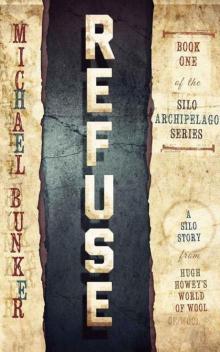 Refuse (The Silo Archipelago Series Book 1)
Refuse (The Silo Archipelago Series Book 1)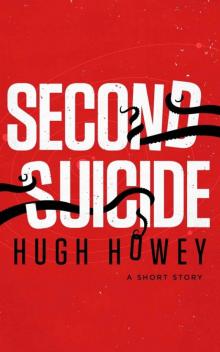 Second Suicide: A Short Story
Second Suicide: A Short Story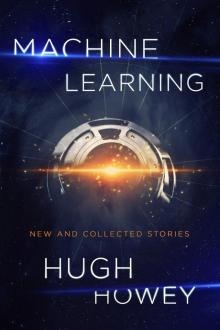 Machine Learning: New and Collected Stories
Machine Learning: New and Collected Stories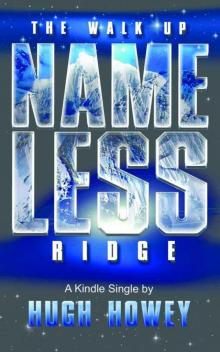 The Walk Up Nameless Ridge
The Walk Up Nameless Ridge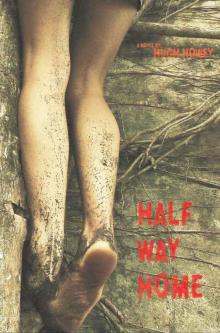 Half Way Home
Half Way Home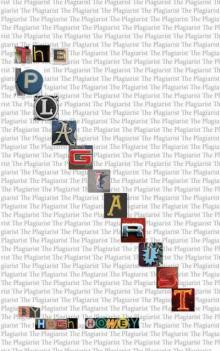 The Plagiarist
The Plagiarist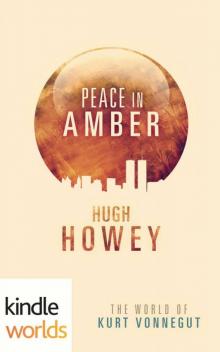 Peace in Amber
Peace in Amber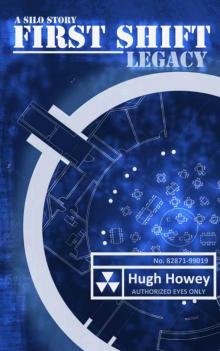 First Shift: Legacy
First Shift: Legacy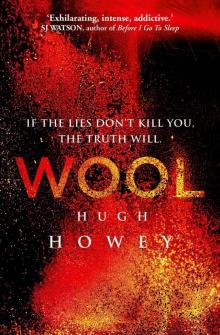 Wool
Wool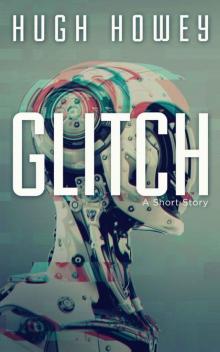 Glitch
Glitch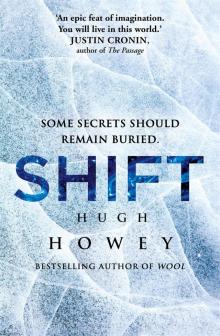 Shift
Shift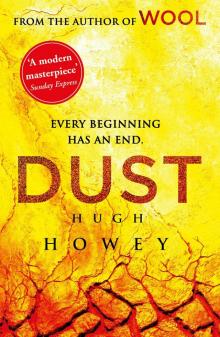 Dust
Dust Molly Fyde and the Land of Light
Molly Fyde and the Land of Light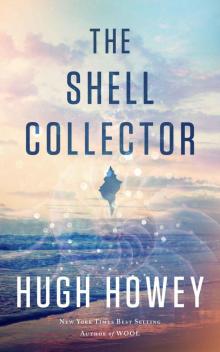 The Shell Collector
The Shell Collector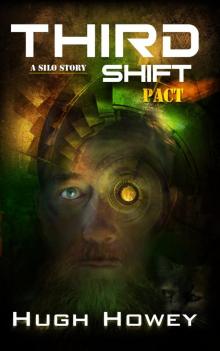 Third Shift: Pact
Third Shift: Pact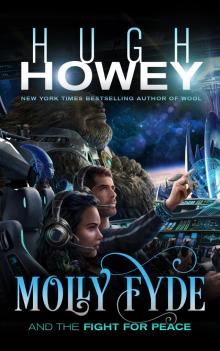 Molly Fyde and the Fight for Peace
Molly Fyde and the Fight for Peace Sand Omnibus
Sand Omnibus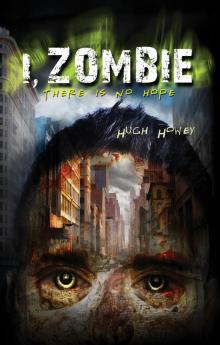 I, Zombie
I, Zombie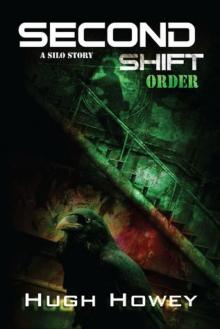 Second Shift: Order
Second Shift: Order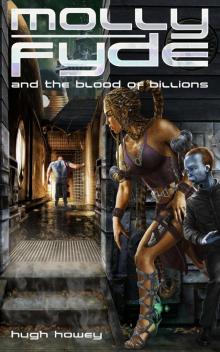 Molly Fyde and the Blood of Billions
Molly Fyde and the Blood of Billions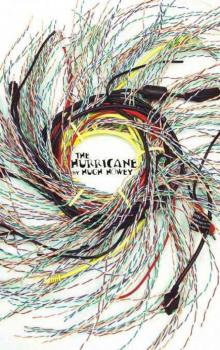 The Hurricane
The Hurricane The Box
The Box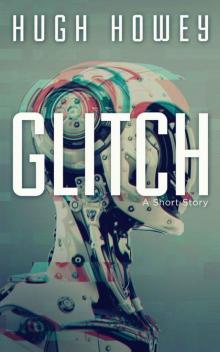 Glitch_A Short Story
Glitch_A Short Story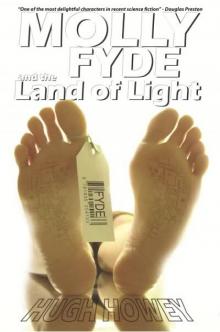 Molly Fyde and the Land of Light tbs-2
Molly Fyde and the Land of Light tbs-2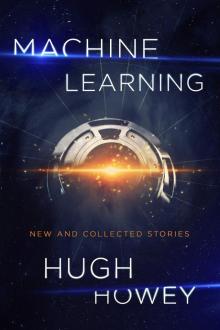 Machine Learning
Machine Learning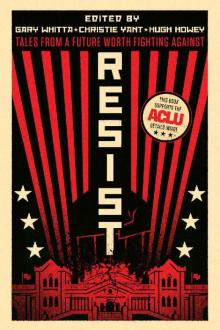 Resist
Resist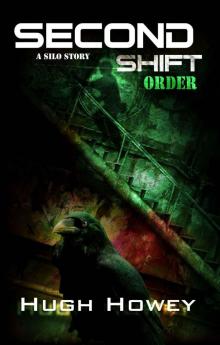 Second Shift - Order (Part 7 of the Silo Series) (Wool)
Second Shift - Order (Part 7 of the Silo Series) (Wool)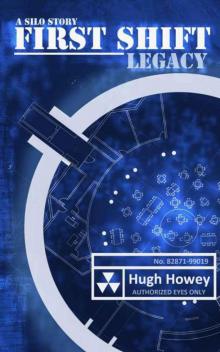 First Shift - Legacy s-1
First Shift - Legacy s-1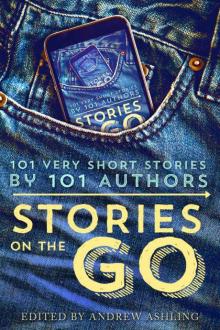 Stories on the Go: 101 Very Short Stories by 101 Authors
Stories on the Go: 101 Very Short Stories by 101 Authors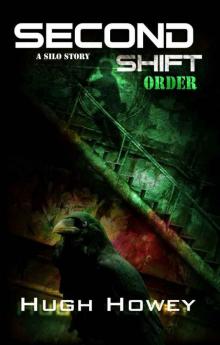 Second Shift - Order s-2
Second Shift - Order s-2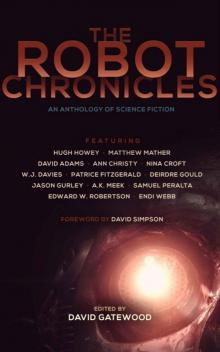 The Robot Chronicles
The Robot Chronicles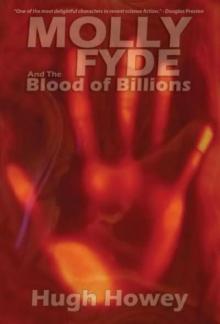 Molly Fyde and the Blood of Billions tbs-3
Molly Fyde and the Blood of Billions tbs-3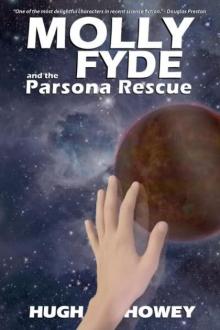 Molly Fyde and the Parsona Rescue tbs-1
Molly Fyde and the Parsona Rescue tbs-1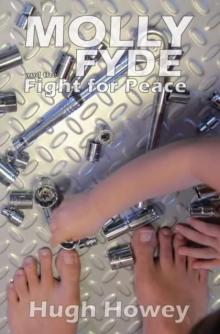 Molly Fyde and the Fight for Peace tbs-4
Molly Fyde and the Fight for Peace tbs-4 Sand
Sand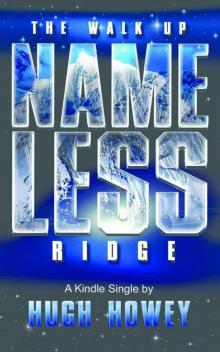 The Walk Up Nameless Ridge (Kindle Single)
The Walk Up Nameless Ridge (Kindle Single)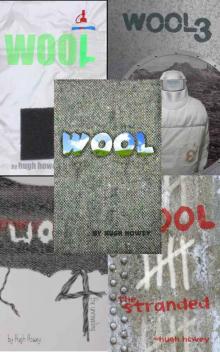 Wool Omnibus Edition (Wool 1 - 5)
Wool Omnibus Edition (Wool 1 - 5)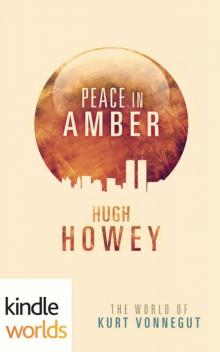 The World of Kurt Vonnegut: Peace in Amber
The World of Kurt Vonnegut: Peace in Amber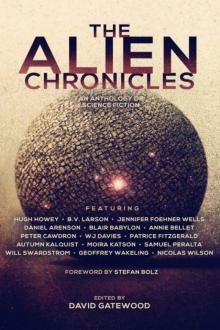 The Alien Chronicles
The Alien Chronicles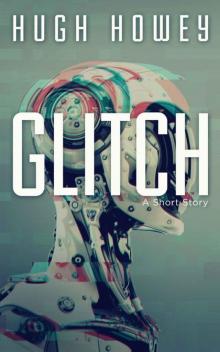 Glitch: A Short Story (Kindle Single)
Glitch: A Short Story (Kindle Single)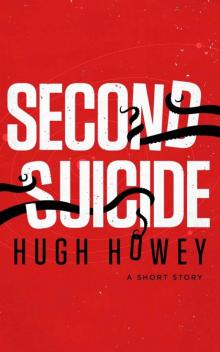 Second Suicide: A Short Story (Kindle Single)
Second Suicide: A Short Story (Kindle Single)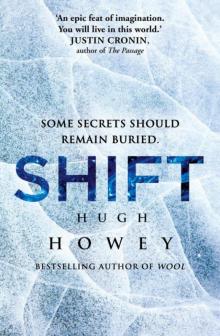 Shift (silo)
Shift (silo)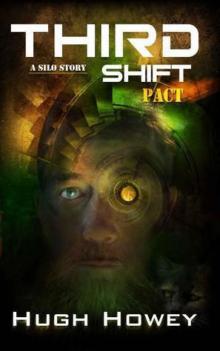 Third Shift - Pact
Third Shift - Pact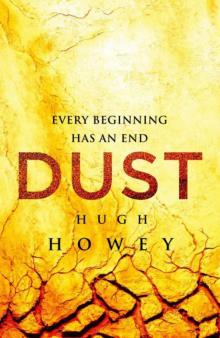 Dust s-9
Dust s-9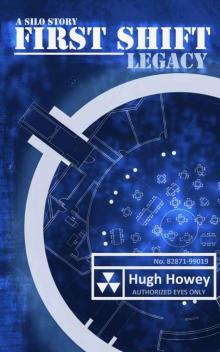 First Shift - Legacy (Part 6 of the Silo Series) (Wool)
First Shift - Legacy (Part 6 of the Silo Series) (Wool)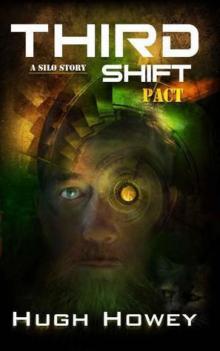 Third Shift - Pact s-3
Third Shift - Pact s-3 Sand: Omnibus Edition
Sand: Omnibus Edition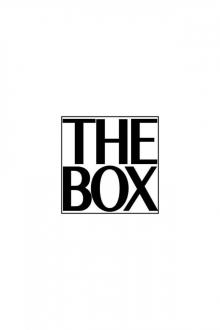 The Box: A Short Story
The Box: A Short Story